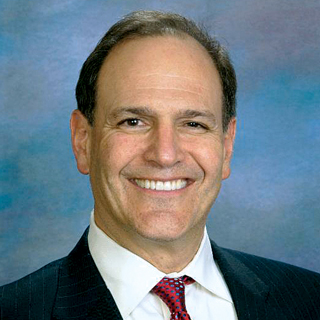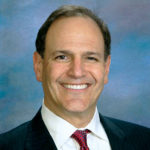
A Jan. 15, 2014, article published in the Wall Street Journal titled “Compliance Officer: Dream Career?” identified being a compliance officer as “one of the hottest jobs in America.”
While an internet search today will return a different result, the role and need for compliance officers is still important and continues to grow and expand, particularly in the healthcare sector where expenditures amount to 18 percent of our country’s gross domestic product (GDP).
A bit of history re: expanding compliance officer role
Starting with the passage of the Affordable Care Act of 2010, having a compliance program has been required for long-term healthcare facilities, along with oversight and enforcement by the U.S. Department of Health and Human Services (HHS) Office of Inspector General (OIG).
In March 2013, the Centers for Medicare & Medicaid Services (CMS), in response to the Affordable Care Act mandates, began requiring long-term care facilities (LTC) to not only have a compliance program but to also have a designated compliance officer.
CMS issued its “Long-Term Care Requirements of Participation Final Rule” in 2016. The implementation of the changes this reformation contained involved three phases, noting that the requirements for LTC participation had not been comprehensively updated since 1991, even though there have been significant changes in the healthcare sector.
Nov. 28, 2019, was the effective implementation date for Phase 3 of CMS’s Requirements for Participation regulations. Included in Phase 3, Compliance and Ethics Program (§483.85) was the requirement for all LTC facilities to establish a written compliance and ethics program with standards, policies, and procedures capable of reducing the prospect of criminal, civil, and administrative violations of the Social Security Act and promote quality of care.
In addition to the establishment of the written compliance and ethics program, §483.85(c)(2) requires individual LTC facilities to assign specific individuals within the high-level personnel of the organization with overall responsibility to oversee compliance with the organization’s compliance and ethics program’s standards, policies, and procedures. They may be, but are not limited to, the organization’s CEO, members of the board, or directors of major divisions in the operation of the organization. Also, LTC facilities must provide adequate resources and authority to that individual for the oversight of the compliance and ethics program.
Organizations operating five or more facilities were given additional requirements, although results of public comment sought for this section of the regulation by CMS have not yet been released:
- Conduct mandatory staff training
- Designate a compliance officer for whom the operating organization’s compliance and ethics program is a major responsibility, who reports directly to the governing body, and is not subordinate to general counsel, the chief financial officer, or the chief operating officer
- Designate compliance liaisons located at each of the organization’s facilities
Governance by various federal and state agencies makes healthcare compliance more complex
Healthcare compliance involves many different aspects and is governed by more than one state and federal agency with regulations and laws that are frequently changed. Differences exist regarding laws between federal and state entities and between state and local governments. Consequently, it becomes very important for LTC facilities to keep up-to-date with laws that apply to them.
The following is a list of some governing bodies and federal regulations that are involved with healthcare compliance:
- Medicare, Medicaid, etc., are governed by the Social Security Act.
- Health Insurance Portability and Accountability Act (HIPAA) and the Health Information Technology for Economic and Clinical Health Act (HITECH) require healthcare organizations to protect patient records.
- Filing false claims for funds from a federal program is illegal under the False Claims Act.
- The Food and Drug Administration (FDA) and the Drug Enforcement Administration regulate the making and distribution of medication.
- The HHS and OIG help protect against fraud.
- Laws established by the Occupational Safety and Health Administration (OSHA) and the Equal Employment Opportunity Commission (EEOC) are applicable to healthcare organizations.
Risk assessment plays an important role in developing an effective compliance program
The development and implementation of an effective compliance program must be centered around the seven key elements of the OIG’s Compliance Program Guidance for LTC Facilities. It involves assessing internal and external compliance risk of the facility and designing the compliance program to best mitigate those risks. The following are the seven elements that will enable a healthcare organization to develop and promote a “culture of compliance” within the organization:
- Standards, policies and procedures.
- Compliance program administration
- Screening and evaluation of employees, physicians, vendors and other agents
- Communication, education and training on compliance issues
- Monitoring, auditing and internal reporting systems
- Discipline for non-compliance with well-publicized disciplinary guidelines
- Investigations and remedial measures
Failing to have an effective compliance program will contribute to:
- Increases in violations
- Undetected kickback violations and/or submissions of false claims
- Evidence of deliberate submission of false claims
- Having the OIG require participation in a mandated Corporate Integrity Agreement
Growing complexity with healthcare compliance increases need for professional qualification programs
The growing complexity involved with healthcare compliance positions continues to push the bar higher and higher in terms of education prerequisites and professional certification/training. Not only is a bachelor’s degree a basic requirement, many organizations are also seeking persons with two to five years of experience in a healthcare environment, completion of certificate/certification programs, and master’s or higher degrees.
Consequently, comprehensive professional qualification programs offering training to promote a high level of proficiency in the core standards of Compliance and Ethics Management are helping to provide and establish core standards for LTC compliance professionals like these:
- Compliance and ethics officers
- Quality and risk management professionals
- Healthcare executives
- Healthcare professions with requisite backgrounds
- Non-clinical healthcare professionals with requisite backgrounds
Companies like Med-Net Compliance, LLC, with its plethora of experienced and recognized staff of healthcare professionals, has been providing education and auditing under the direction of a healthcare law firm since 1997. Recently, Med-Net Compliance, LLC, has launched a Compliance Officer Qualified Certificate Program (CO-Q) for long-term care professionals. The certificate program is a NAB/NCERS approved, seven element program that allows candidates who successfully complete the program to earn 8.75 CEs. NAB is the nation’s leading authority on licensing, credentialing, and regulating administrators of organizations along the continuum of long-term care.
The Compliance Officer Qualified Certificate Program establishes core standards for the field of long-term care compliance management. The CO-Q credential provides professionals working in Compliance Management a means to demonstrate their proficiency and skill in the discipline. For organizations, requiring the CO-Q credential provides a way for employers to validate a potential candidate’s compliance management knowledge, skill base and critical competencies. For program details visit www.mednetcompliance.com/co-q-program/.
David Barmak, J.D., is CEO of Med-Net Compliance LLC in West Windsor, NJ.





